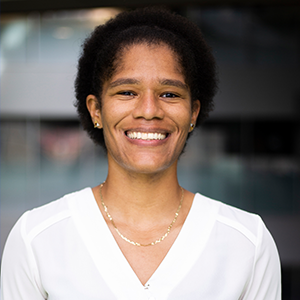A STRATEGIC PERSPECTIVE ON ELECTRICITY IN CENTRAL AND EASTERN CANADA
Webinar by the IEEE Ottawa Section, Power and Energy Society Ottawa Chapter (PES), Life Members (LM) Chapter, Reliability Society and Power Electronics Society Joint Chapter (RS/PELS), Instrumentation & Measurement Society Chapter (IMS), and IEEE Ottawa Educational Activities (EA)
Online registration is required.
Date and Time
Location
Hosts
Registration
-
 Add Event to Calendar
Add Event to Calendar
Loading virtual attendance info...
- Contact Event Host
-
Ajit.Pardasani@ieee.org
Branislav.Djokic@ieee.org
shamsodin.taheri@uqo.ca
- Co-sponsored by RS/PELS, IMS, ComSoc/ CESoc/BTS, and IEEE Ottawa Educational Activities (EA)
Speakers
 Ms. Éloïse Edom of Institut de l’énergie Trottier
Ms. Éloïse Edom of Institut de l’énergie Trottier
A STRATEGIC PERSPECTIVE ON ELECTRICITY IN CENTRAL AND EASTERN CANADA
As part of the decarbonization of electricity, targeted for 2035, this white paper paints a picture of the situation in Ontario, Quebec, New Brunswick, Nova Scotia, Prince Edward Island and Newfoundland and Labrador. If each province has its own issues to deal with, a significant number of common issues could benefit from a shared analysis. This webinar will present the main challenges identified by the report in these provinces.
The key finding is that there is a major disconnect between current electrical utility planning and the efforts that are needed to meet the climate goals set by provincial and federal governments. We are heading towards a significant lack of electricity available to meet the various needs generated by the transition. Following the current path, it will indeed be impossible, in most provinces, to meet the electricity needs created by the growth of the fleet of electric vehicles and the decarbonization of building heating, by 2030. The situation worsens if we consider carbon neutrality objectives of the federal government and some provinces for 2050.
Biography:
Éloïse is an associate researcher at the Institut de l’énergie Trottier. She holds a bachelor degree in mechanical engineering, a professional Master’s in energy engineering as well as a M.Sc. in applied mathematics from Polytechnique Montréal. She previously worked as a research associate as part of the Group for Research in Decision Analysis (GERAD) at Polytechnique Montréal on the maintenance of electrical energy production systems. Now part of IET team, she works on various technico-economic analysis related to the energy transition.
Address:Montreal, Quebec, Canada
 Dr. Simon Langlois-Bertrand of Institut de l’énergie Trottier
Dr. Simon Langlois-Bertrand of Institut de l’énergie Trottier
Biography:
Simon Langlois-Bertrand is an associate researcher at the Institut de l’énergie Trottier. He holds a Ph.D. in international affairs and degrees in political science as well as in industrial and computer engineering. He specializes in energy and environmental policy, and teaches political science and international relations at Concordia University, at UQAM, as well as at Carleton University.
He is the main author of the Canadian Energy Outlook, and his work at the IET focuses on analyzing the political, technical and social challenges surrounding the energy transition, as well as broader socio-technical transitions toward low-carbon societies.
Address:Montreal, Quebec, Canada

